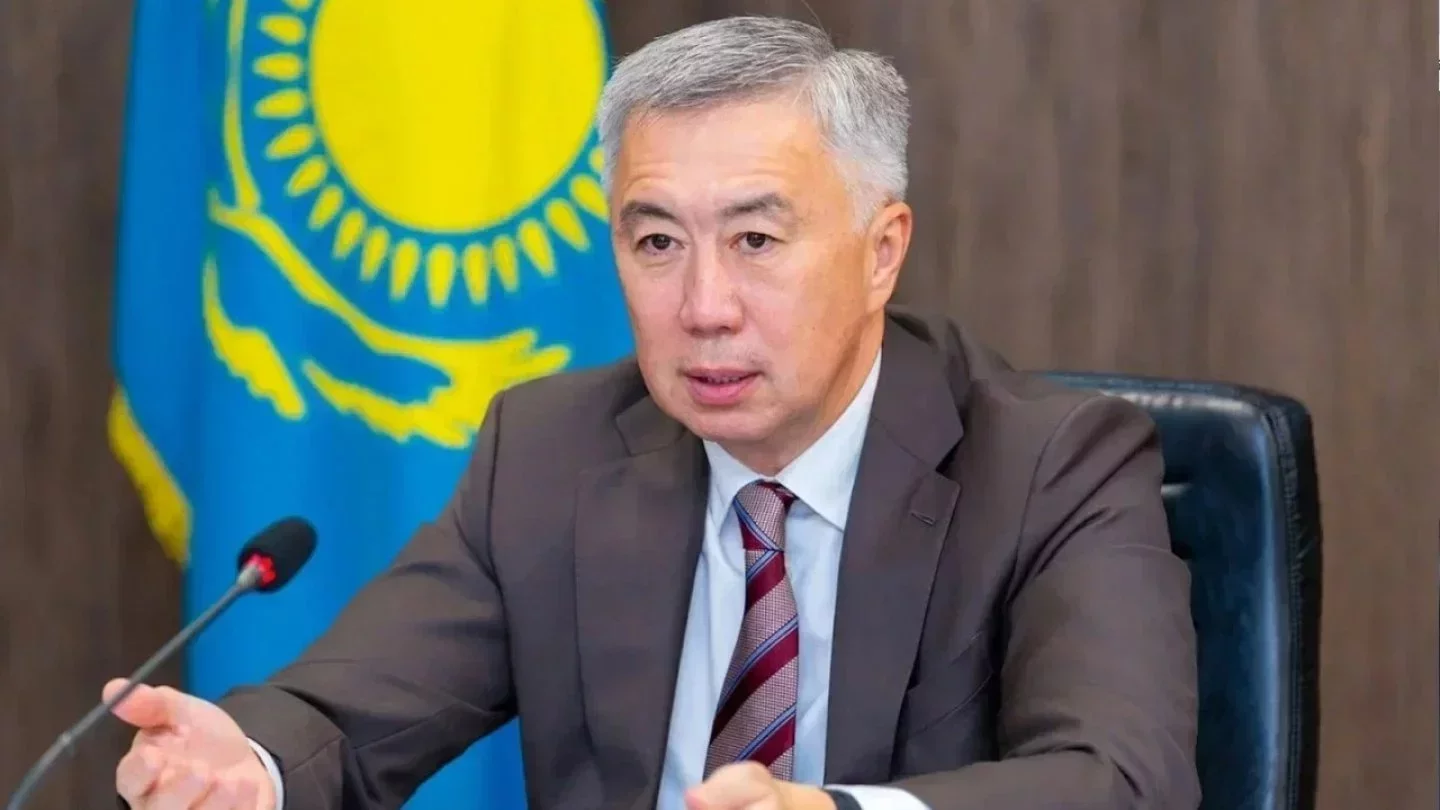Zhumangarin Comments on Tax Reform, Fuel Price Freeze, and Utility Tariffs
 Photo: primeminister.kz
Photo: primeminister.kz
Economy Minister Serik Zhumangarin commented on several economic matters, Orda.kz reports.
Tax Reforms
The list of economic activities for which the transition to a simplified tax regime is prohibited may still be revised.
Journalists on the sidelines of the Majilis addressed Serik Zhumangarin, known as the “father of tax reform,” and asked his opinion on how the reform had turned out.
The initial draft tax reform promoted by Zhumangarin proposed a ban on the simplified special tax regime (STR) for 795 types of activities.
The General Classifier of Economic Activities (GCEA) contains only 1,111 items, meaning 70% were on the prohibited list. However, the approved list only includes 44 items. The head of the Ministry of National Economy was asked whether this meant the reform hadn’t gone according to plan.
We never said that the exclusion list was exactly like that. And we honestly say we’re open to discussion. The GCEA exclusion list itself is important, but it doesn’t play a significant role in this case. More important is the ban on deductions for entities operating under the STR with a simplified tax filing,
Serik Zhumangarin believes.
According to him, the ban on expense deductions affects approximately 20% of Kazakhstani businesses that operate under the SNR but maintain ties with companies under the general tax regime.
Now’s the time for them to make a decision: will they remain on the simplified tax filing system and operate b2c (business-to-client), or will they register for VAT and operate b2b (business-to-business, building relationships with other companies). But if their turnover is below 43 million tenge per year, they don’t have to pay VAT. These regulations have never been repealed; they were in the current tax code. We’ve lowered the threshold to 10,000 MCIs, which is now around 43 million tenge. I believe that together we’ve achieved an acceptable result, allowing us to stabilize public finances next year,
the head of the Ministry of National Economy stated.
Kazakhstani businesses have already expressed their position on the STR and the ban on deductions.
Entrepreneurs have launched a petition on the ePetition website demanding a revision of Section 16 of Article 286 of the new Tax Code, which prohibits expense deductions for companies operating under the simplified tax system.
Fuel Price Freeze to Last Until 2026
The Deputy Prime Minister announced that the current price freeze on gasoline and diesel fuel will last until at least the spring of 2026.
He said the decision is due to the external market:
We need to wait for stabilization in neighboring countries. We’re trying to catch up (with fuel prices – ed.), narrow the gap (price gap – ed.), but they keep growing. This is due to both the exchange rate difference and the fact that some neighboring countries are experiencing shortages, which is driving up prices. And they, unlike us, don’t regulate prices through administrative measures,
said Zhumangarin.
According to him, no sharp price changes within the country are expected until spring.
After that, everything will depend on the exchange rate, shortages in neighboring countries, and the overall stabilization of the regional fuel market.
Utility Tariffs and Inflation Control
Economy Minister Serik Zhumangarin also outlined how utility rates will increase.
The moratorium on tariff increases, introduced until spring 2026, raises concerns for Zhumangarin, as the deteriorating infrastructure could fail during the cold season.
We’ve taken a time lag to avoid raising all tariffs at once. We’re extending the duration of investment programs. Since all these innovations began on October 1, we’ll see the results in November in terms of inflation. We can already say that instead of a 1.32% contribution to inflation by the end of the year, the entire utilities sector will contribute only 0.25%. This will significantly help slow inflation,
the minister believes.
At the same time, according to him, the utilities sector managed to attract approximately 650 billion tenge in investment and repair thousands of kilometers of utility networks.
Original Authors: Anastasia Prilepskaya, second article, Ilya Astakhov
Latest news
- Russia Conducts Strategic Nuclear Forces Drill Under Putin’s Supervision
- Language Dispute Erupts Over New School in Almaty
- Oskemen Residents Complain of Severe Air Pollution
- Schoolgirl Gives Birth: Yenbekshi Villagers Share Details
- Zhumangarin Comments on Tax Reform, Fuel Price Freeze, and Utility Tariffs
- U.S. Chamber of Commerce Calls for Full Repeal of Caesar Syria Act
- Kazakhstan: Bill Proposing Fines for Reposting Prohibited Content on Social Media Passes First Reading
- Majilis Approves Kazakhstan’s 2026–2028 Budget
- U.S. Seeks Partnership with Kazakhstan to Develop Tungsten Deposits
- YouTube Blocks Lukpan Akhmedyarov’s Channel for Second Time This Year
- Trump Says Decision on Meeting With Putin 'Still Undecided'
- Former Shymkent Maslikhat Deputy Placed on Wanted List Again in Shymkent
- Gas Deliveries from Karachaganak to Orenburg Plant Resume After Drone Attack
- Kazakhstan Raises $1.5 Billion Through Eurobond Issue Amid Rising National Debt Concerns
- National Bank Head Says Inflation Driven by Excess Money in Economy
- Schoolgirl Gives Birth: Prosecutors and MIA Launch Investigation, 71-year-old Man Main Suspect
- Resident of North Kazakhstan Village Finds Possible Mammoth Tooth
- Turkmenistan: Pregnant Woman Dies After Roads Closed for President’s Visit
- Kairat Earn Their First Champions League Point: How the Almaty Club Held Off Pafos
- Court Rejects Legal Media Center’s Lawsuit Against Astana Akimat Over Access to Information

